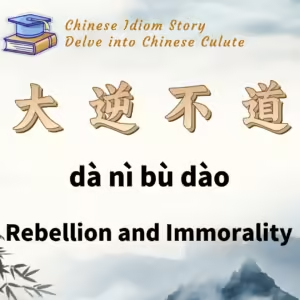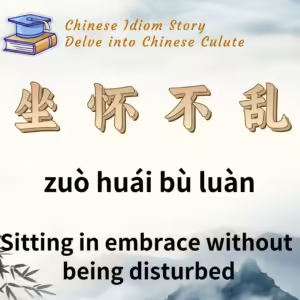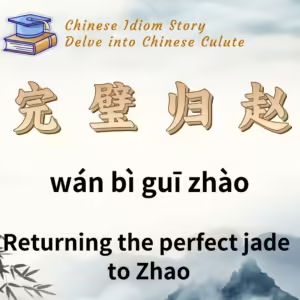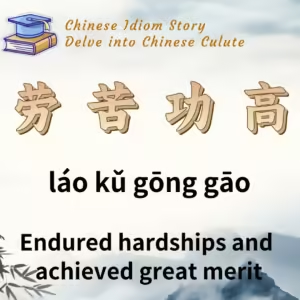
Chinese Idiom: 无功受禄 (Wu Gong Shou Lu)
English Translation: Receive Rewards without Having Made any Contribution
pīn yīn: wú gōng shòu lù
Idiom Meaning: This idiom refers to the situation where someone receives rewards or privileges without having put in any effort or achieved any results. It implies an unfair or undeserved advantage.
Historical Source: Zuo Tradition (左传).
Idiom Story
During the Warring States period, the state of Zhao frequently invaded the state of Chu. At that time, a man named Du He from Chu claimed he could persuade Zhao to make peace with Chu. Chu’s King Huai was very pleased and decided to appoint Du He to the rank of the Fifth Minister (a high-ranking official) and send him to Zhao.
Chen Zhen, a court official, was concerned that if Du He failed to fulfill his mission but still received the high rank, it would be an example of “无功受禄” (receiving rewards without merit). Chen Zhen advised King Huai, saying, “If Du He does not succeed in his mission, giving him the rank of Fifth Minister would be unjust.”
King Huai agreed with Chen Zhen’s advice and asked what should be done instead. Chen Zhen suggested that the king should send Du He with ten chariots of soldiers to Zhao. The rank of Fifth Minister would only be awarded upon the successful completion of his mission.
Following Chen Zhen’s advice, King Huai sent Du He with ten chariots. When Du He saw that the king had not immediately offered him the promised rank, he became very angry and refused to go to Zhao. Chen Zhen then explained to King Huai that Du He’s refusal to undertake the mission revealed his true intentions—he was trying to secure the rank without fulfilling his part.
Thus, this story illustrates the concept of “无功受禄,” emphasizing the principle that rewards should be given only for genuine achievements and contributions.






